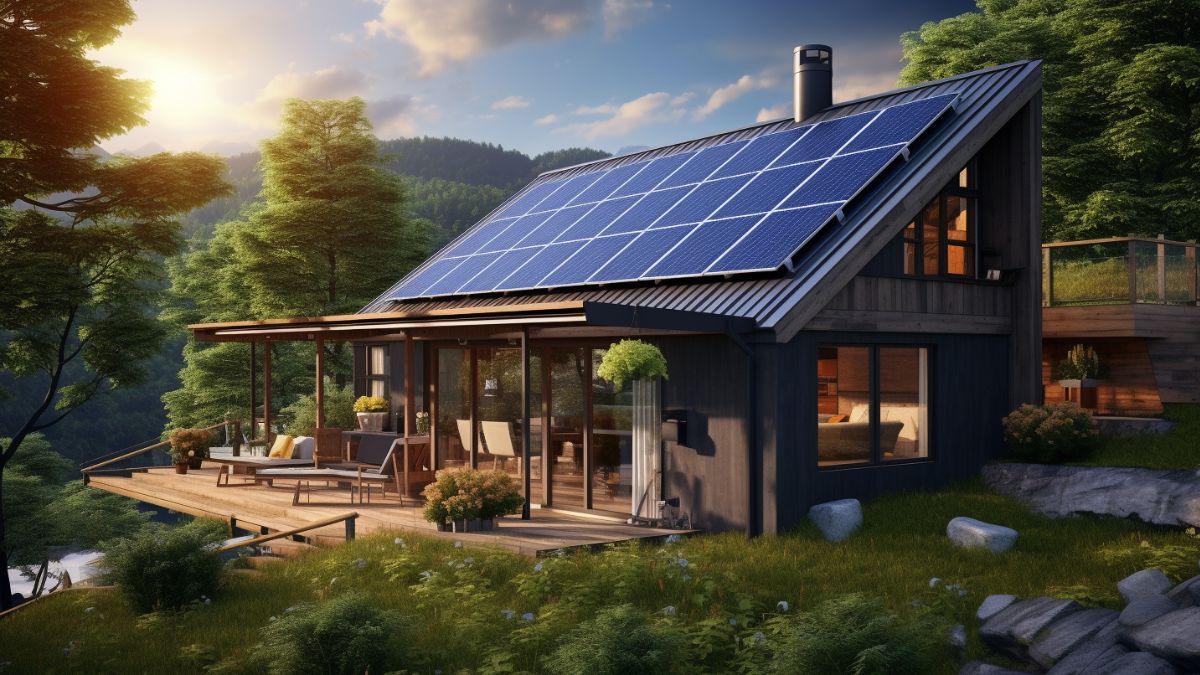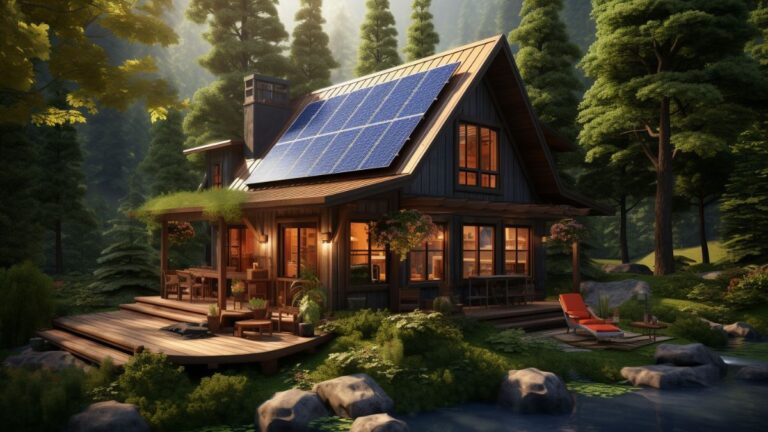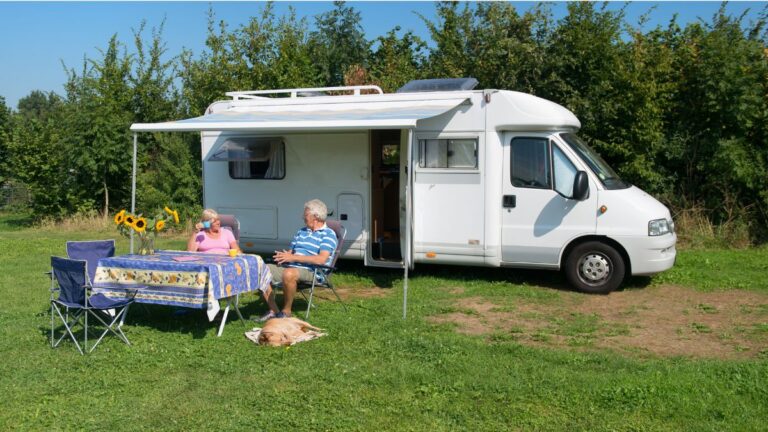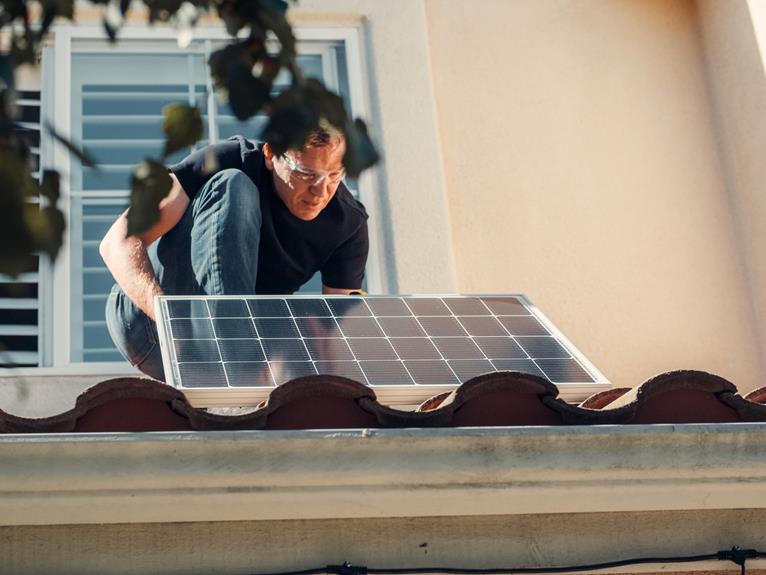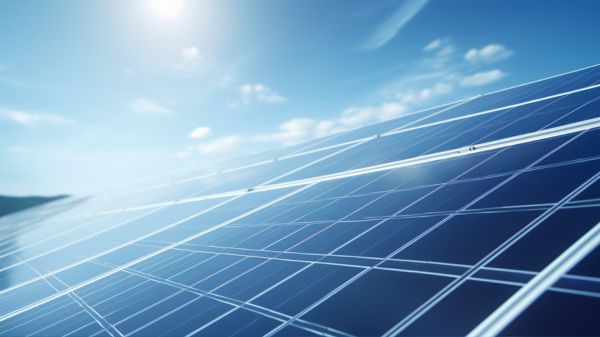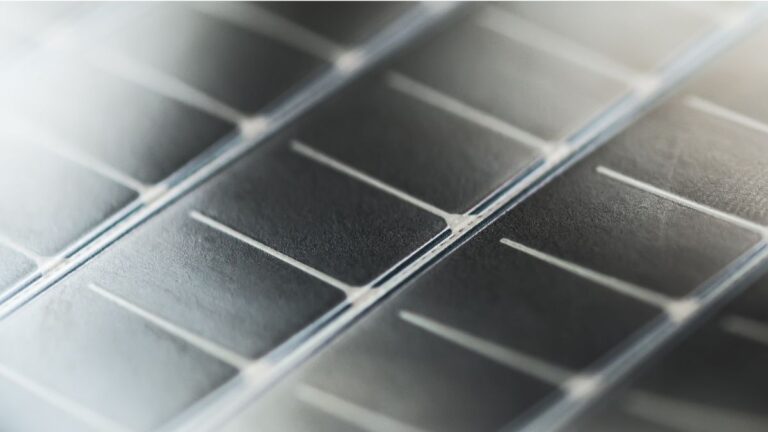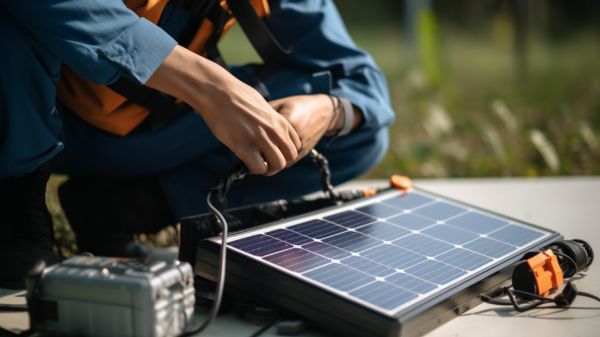6 Essential Tips for Off-Grid Solar Power Generation
Are you ready to harness the power of the sun and go off-grid? Look no further! In this article, we’ll provide you with 6 essential tips for off-grid solar power generation.
From choosing the right panels to maximizing energy efficiency, we’ve got you covered.
With our expert advice, you’ll be able to create a sustainable and efficient solar system that not only saves you money but also gives you a sense of belonging to the growing community of environmentally-conscious individuals.
Let’s get started!
Key Takeaways
- Choose high-efficiency and durable solar panels to maximize energy production and ensure longevity.
- Size your battery system appropriately to meet your energy consumption needs and avoid unnecessary costs or power shortages.
- Implement energy conservation techniques and load management practices to reduce overall energy consumption.
- Regularly maintain and inspect all components of the off-grid solar system, including cleaning the panels, checking battery levels, and inspecting the inverter and wiring.
Choosing the Right Solar Panels
When choosing the right solar panels for your off-grid solar power system, it’s important to consider the efficiency and durability of the panels.
Solar panel efficiency refers to the ability of the panels to convert sunlight into usable electricity. Higher efficiency panels produce more electricity from the same amount of sunlight, allowing you to generate more power for your off-grid needs.
On the other hand, solar panel durability is crucial as it ensures the longevity and reliability of the panels in various weather conditions. Look for panels that are made with high-quality materials and have a strong frame to withstand harsh environments.
Investing in efficient and durable solar panels will maximize your energy production and provide you with a reliable power source for your off-grid lifestyle.
Selecting the Ideal Battery System
To ensure a reliable and efficient off-grid solar power system, it’s essential for you to carefully select the ideal battery system that will complement your solar panels. The battery capacity and lifespan are crucial factors to consider when choosing the right battery system for your off-grid solar setup.
Battery capacity refers to the amount of energy that a battery can store. It’s important to calculate your energy consumption needs and select a battery system with sufficient capacity to meet those requirements. Oversizing the battery capacity can lead to unnecessary costs, while undersizing can result in frequent battery recharging or even power shortages.
Battery lifespan is another critical aspect to consider. The lifespan of a battery depends on various factors such as the type of battery, usage patterns, and maintenance. Lithium-ion batteries are known for their longer lifespan compared to lead-acid batteries. Regular maintenance and proper charging practices can also extend the lifespan of your battery system.
Sizing Your Off-Grid Solar System
Once you have selected the ideal battery system for your off-grid solar setup, it’s important to determine the appropriate size for your off-grid solar system.
Sizing your off-grid solar system involves calculating the load that your system will need to support and estimating the solar system cost.
To calculate the load, you need to determine the total amount of electricity that your appliances and devices will consume on a daily basis. Consider the wattage of each device and the number of hours it will be used. This will give you an estimate of the total energy requirements.
Next, you need to consider the solar system cost. This includes the cost of the solar panels, inverters, batteries, and other components. You should also factor in the installation and maintenance costs.
Maximizing Energy Efficiency
To maximize energy efficiency, prioritize optimizing the performance of your off-grid solar system. Energy conservation and load management are two key factors to consider.
Implementing energy conservation techniques can help reduce the overall energy consumption of your system. This can be achieved by using energy-efficient appliances and lighting, insulating your home properly, and minimizing energy wastage.
Load management involves balancing the energy demand and supply to ensure efficient utilization of your solar power. By monitoring and controlling the energy usage of different appliances and devices, you can distribute the load evenly throughout the day. This can help prevent overloading your system during peak hours and improve its overall efficiency.
Additionally, regular maintenance and cleaning of your solar panels can optimize their performance and ensure maximum energy generation.
Ensuring Proper System Maintenance
To ensure optimal performance of your off-grid solar system, regularly and meticulously maintain and inspect all components. Proper system maintenance is crucial for maximizing energy efficiency and preventing any potential issues that may arise.
By following a systematic approach to maintenance, you can ensure that your system operates at its peak performance. Here is a table outlining the key components and the recommended maintenance tasks:
| Component | Maintenance Tasks |
|---|---|
| Solar Panels | Clean panels regularly to remove dirt and debris |
| Batteries | Check battery levels and perform regular maintenance |
| Inverter | Inspect for any signs of damage or malfunction |
| Wiring | Check for loose connections and damage |
| Charge Controller | Monitor and adjust charge settings as needed |
| Mounting System | Inspect for stability and tighten any loose bolts |
Off-Grid Solar Power Safety Measures
When it comes to off-grid solar power safety, there are several important measures to consider.
First, electrical equipment protection is crucial to ensure the safety of your system and prevent electrical hazards. This includes installing surge protectors, grounding systems, and using proper wiring techniques.
Additionally, fire prevention measures such as using fire-resistant materials and regularly inspecting and maintaining your system can help minimize the risk of fire.
Lastly, having an emergency response plan in place is essential for the overall safety of your off-grid solar power setup. This includes knowing how to safely shut off your system and having fire extinguishers readily available.
Electrical Equipment Protection
When it comes to off-grid solar power safety measures, it’s important to prioritize the protection of your electrical equipment. Proper maintenance and protection of your equipment will ensure its longevity and efficiency. Here are three essential tips to help you safeguard your electrical equipment:
Regular Electrical Equipment Maintenance:
- Regularly inspect and clean your electrical equipment to prevent dust, dirt, and debris from accumulating, which can lead to overheating and damage.
- Check for loose connections and tighten them if necessary.
- Replace any worn-out or faulty components promptly to avoid potential hazards.
Power Surge Protection:
- Install surge protectors to safeguard your electrical equipment from power surges caused by lightning strikes or sudden voltage fluctuations.
- Surge protectors divert excess voltage to protect your equipment from damage.
- Ensure that your surge protectors are properly rated and installed correctly.
Grounding:
- Proper grounding is crucial for electrical equipment protection.
- It helps divert excess electrical current safely into the ground, preventing electrical shocks and damage to your equipment.
- Ensure that your electrical system is properly grounded according to local electrical codes and standards.
Fire Prevention Measures
Protect your off-grid solar power generation system from potential fires by implementing effective fire prevention measures.
Fire prevention strategies are crucial to ensure the safety and longevity of your system. First and foremost, it’s essential to have a properly installed and regularly maintained electrical system. Faulty wiring or loose connections can lead to electrical sparks, which can ignite a fire. Regularly inspect your system for any signs of damage or wear and promptly repair or replace any faulty components.
Additionally, proper placement of fire extinguishers is crucial. Keep them easily accessible near your solar power system and ensure that everyone in your household knows how to use them effectively.
Emergency Response Planning
Ensure the safety of your off-grid solar power generation system by implementing an effective emergency response plan. Being prepared for any potential emergency or disaster is crucial to protect your investment and ensure the safety of yourself and others.
Here are three essential steps to include in your emergency response plan:
- Emergency Preparedness: Create a detailed plan that outlines the steps you’ll take in case of an emergency. This includes identifying potential risks, establishing communication channels, and designating roles and responsibilities.
- Disaster Response: Develop a clear protocol for responding to different types of emergencies, such as storms, fires, or equipment failures. This should include procedures for shutting down the system, evacuating the area if necessary, and contacting emergency services.
- Regular Training and Drills: Conduct regular training sessions and drills to ensure that everyone involved in the off-grid solar power system is familiar with the emergency response plan. This will help identify any gaps or weaknesses in the plan and improve overall readiness.
Conclusion
So there you have it, the essential tips for off-grid solar power generation. Armed with this knowledge, you can confidently embark on your journey to harness the sun’s energy and enjoy the freedom of living off the grid.
Remember, it’s all about choosing the right panels, batteries, and system size, while also maximizing energy efficiency and ensuring proper maintenance. Stay safe and let the irony of relying on the sun for power illuminate your path to self-sufficiency.
